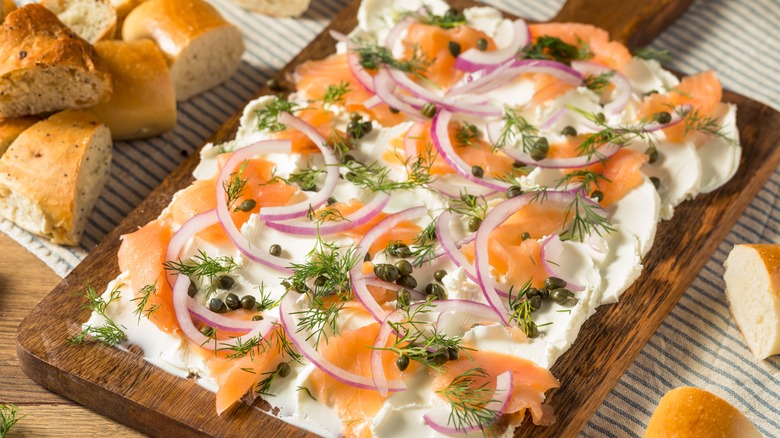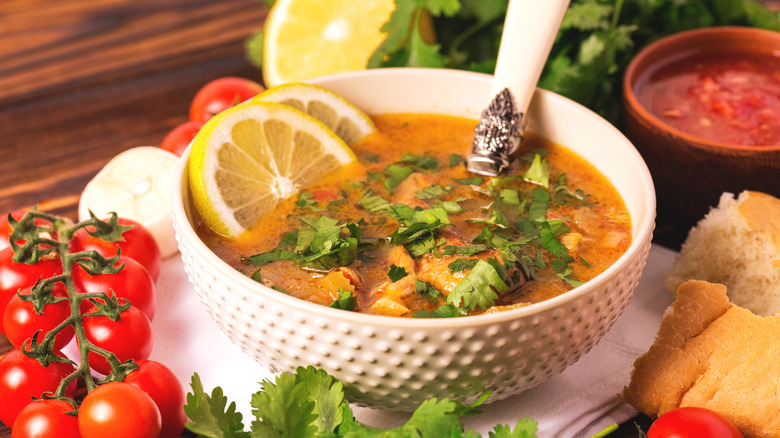The Traditional Pre-Fast Meal Of Yom Kippur, Explained
We may receive a commission on purchases made from links.
As October 11 approaches, many Jewish folks worldwide are preparing to observe Yom Kippur, sometimes referred to as the Day of Atonement. It is Judaism's highest holiday, celebrated not with a festive get-together but instead a period of reflection, prayer, and fasting. However, before the holiday begins, a pre-fast meal is shared with family and friends to prepare for a day of abstaining from food and drink (fasting exceptions are made for children, the ill, and others).
The last meal before the Day of Atonement is called the seudah hamafseket, which means "the separation meal." It consists of simple fare that will sustain observers through 25 hours of forgoing food and drink. The practice of parents offering their children a honeyed cake known as lekach (to signify a satisfying year ahead) is common and shares a connection to the feast of Rosh Hashanah, where sweet carrot tzimmes and other luscious dishes are eaten for much the same reason. However, the rest of the pre-fast supper centers more on reflection and nourishment before atoning.
Some make charcuterie boards with cheese, bagels, and lox. Others serve uncomplicated cuisine like chicken soup and challah bread. The pre-fast meal is widely considered a festive occasion, meaning there are some toothsome dishes served alongside more substantial fare. the table isn't overflowing with sugary delicacies. Sugar can make you dehydrated on a day when you won't be drinking anything, and it can also have you daydreaming of sweets while asking for forgiveness.
Some foods are avoided during the pre-fast meal
A hearty helping of challah with honey is commonplace during the pre-fast meal before Yom Kippur, but sweets aren't a centerpiece of the event. Many likewise refrain from eating salty foods because they can cause dehydration and thirst. Instead, during the supper, many drink plenty of water for hydration, while other refreshing beverages not loaded with sugar are also enjoyed. Alcohol, however, is strictly forbidden, so an intoxicating red wine would have to be stored for enjoying after the holiday.
It would be an exaggeration to call the pre-fast event a feast, as it is generally a modest meal consisting of dishes that will help one sustain diners through a following day without sustenance. Easily digestible dishes such as chicken and fish are staples here. In a similar vein, moderation is key, as loading up on an abundance of food before fasting can cause bloating and discomfort. That's hardly an ideal state when focusing on forgiveness and starting the new year with a clean slate.

